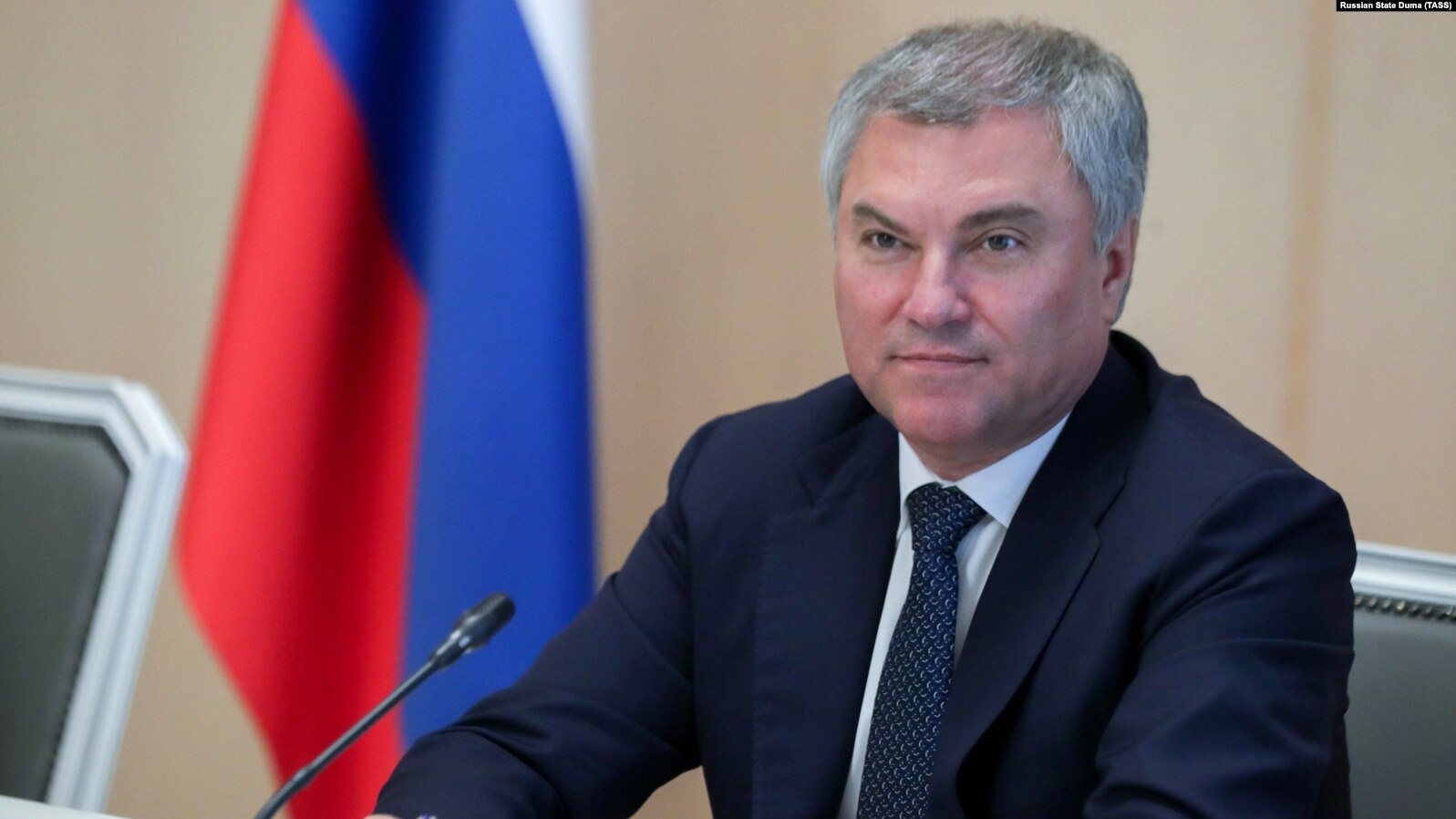Vyacheslav Volodin, the speaker of parliament’s lower chamber, the State Duma, said on March 8 that Facebook had violated the rights of Russian citizens through a move that was tantamount to “digital lawlessness.”
Volodin was responding to news that Facebook blocked articles by RBK and Kommersant in February that Russian law enforcement had arrested alleged members of MKU, a Ukrainian nationalistic youth organization, in the southwestern city of Voronezh.
Police reportedly discovered extremist literature, symbols of nationalist organizations, knives, and an object resembling on old military mine inside their apartments.
Citing Russia’s Federal Security Service (FSB) press service, the news agencies reported their connection to a Ukrainian extremist organization.
However, Russia’s Investigative Committee published a release at the time saying simply that three individuals aged 18, 19, and 33 had been arrested for stirring up racial animosity in Voronezh, which lies near the border with Ukraine.
It made no claim that they were members of a Ukrainian nationalist group.
Russia has tried to play up the actions of Ukrainian nationalist groups to justify its hostile actions toward its neighbor. Russia annexed Crimea seven years ago and continues to back separatists in eastern Ukraine in a war that has killed more than 13,200 people since April 2014.
StopFake, a Ukrainian agency that works with Facebook to find and block Russian disinformation on its platform, said its research concluded the three people arrested in Voronezh all belong to a Russian nationalist organization.
Russia’s media watchdog, Roskomnadzor, has already accused Facebook of censorship and threatened the U.S. company with a minimum 1 million-ruble ($13,440) fine for its actions. It also demanded the company restore access to content posted by TASS, RBK and Vzglyad.
“Instagram and Twitter have done the same in the past. I think this is unacceptable. It violates our national legislation. We will propose legislative solution that would prevent anything like that against Russian media,” Volodin said on March 8.




